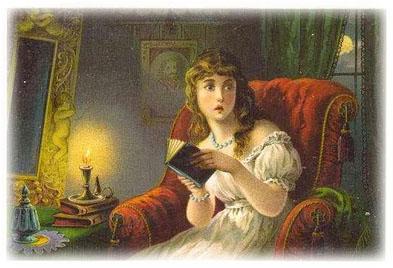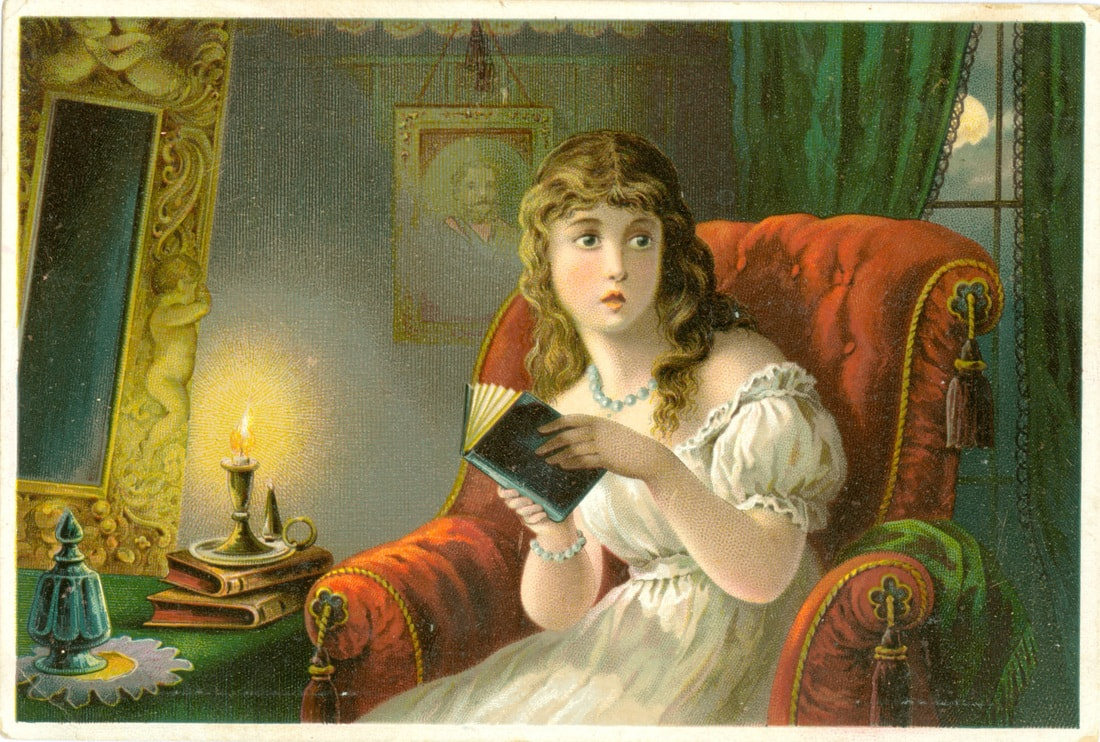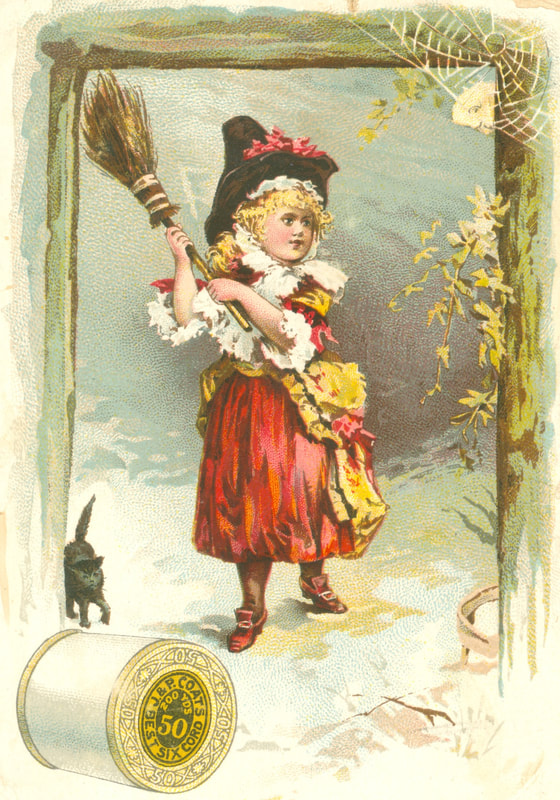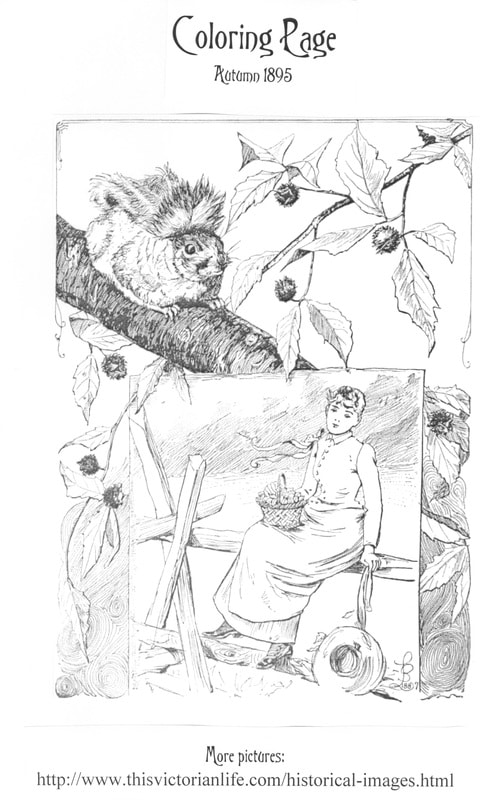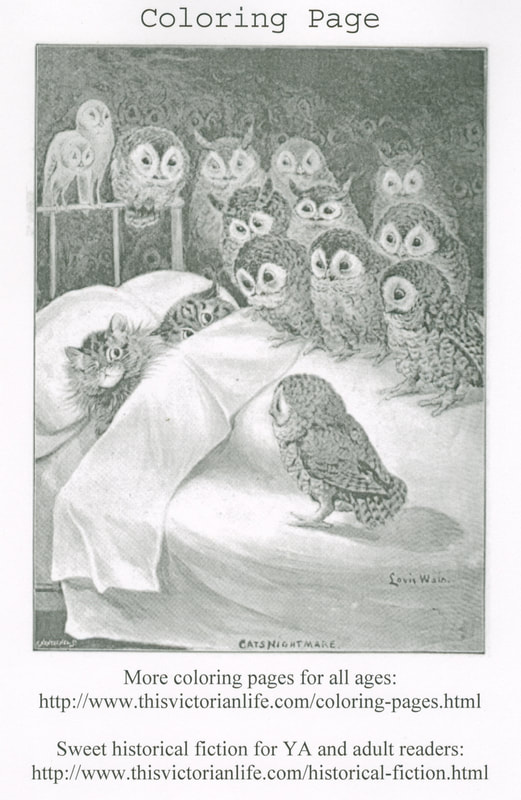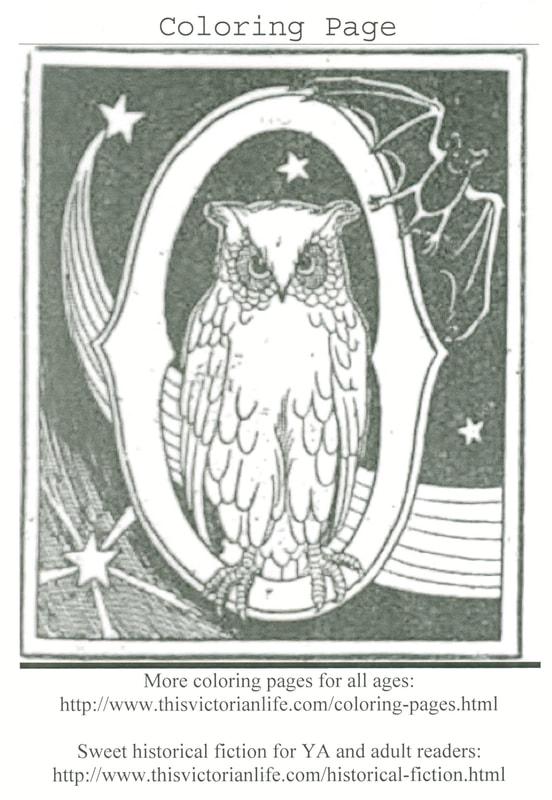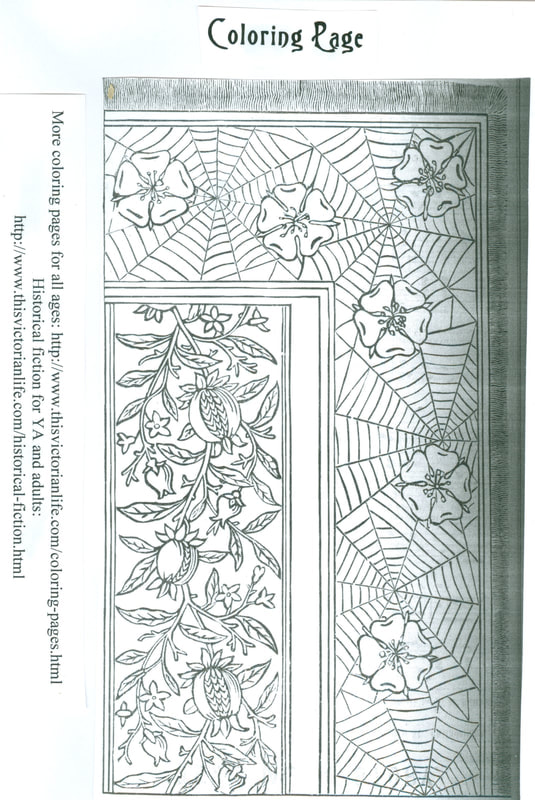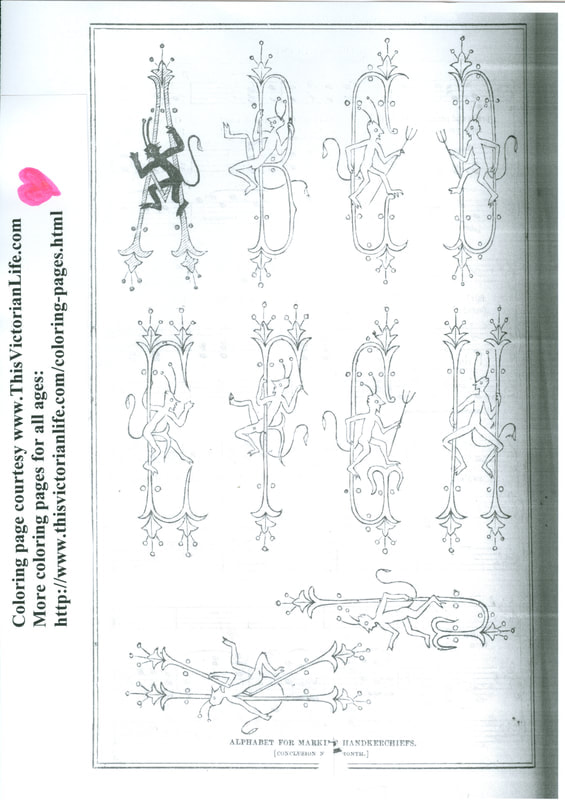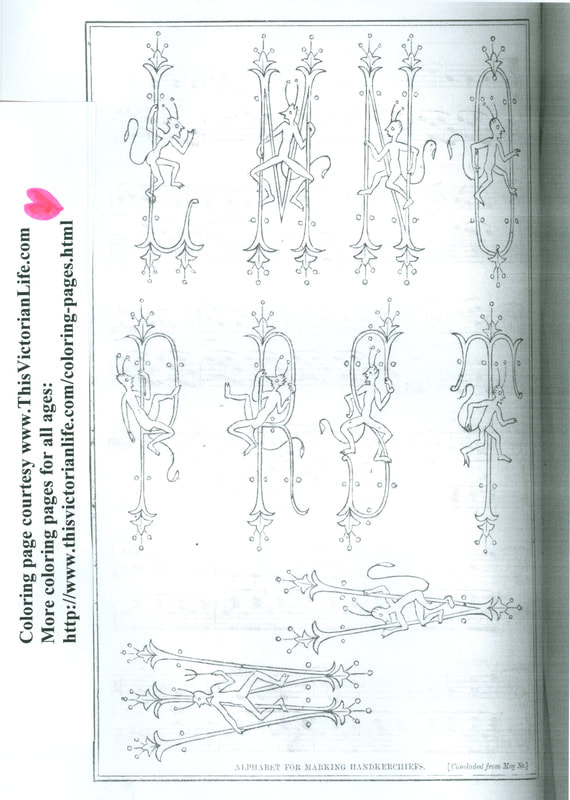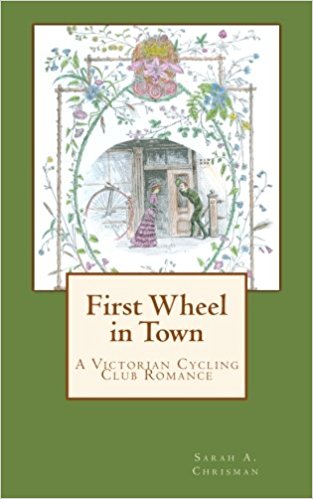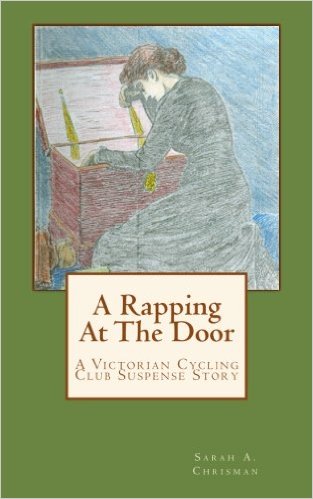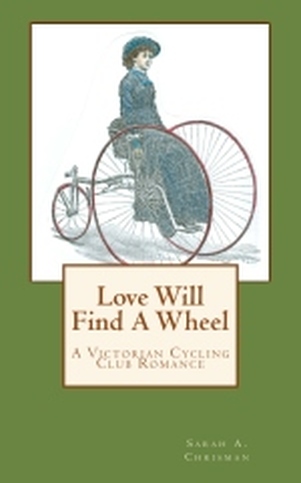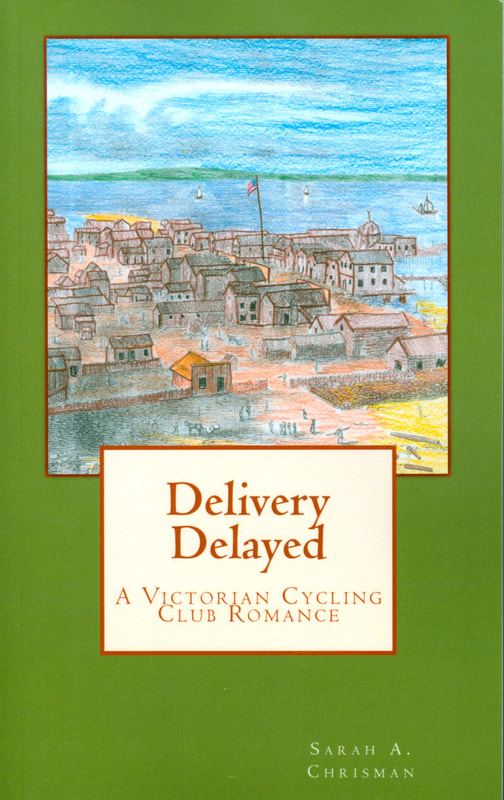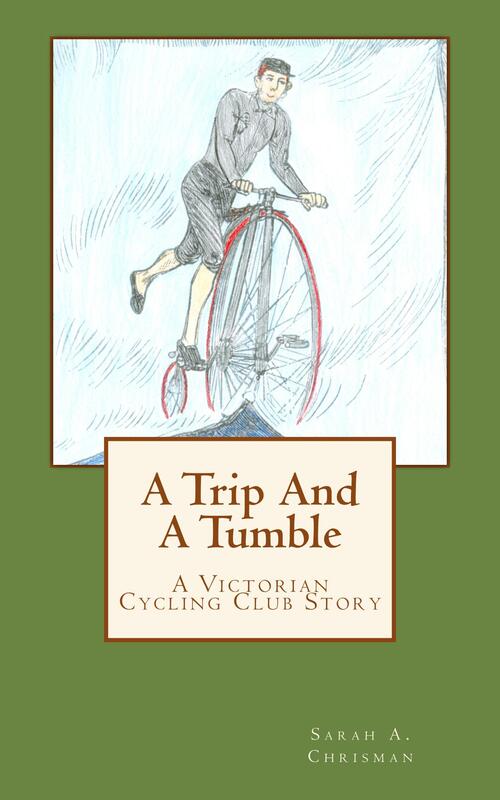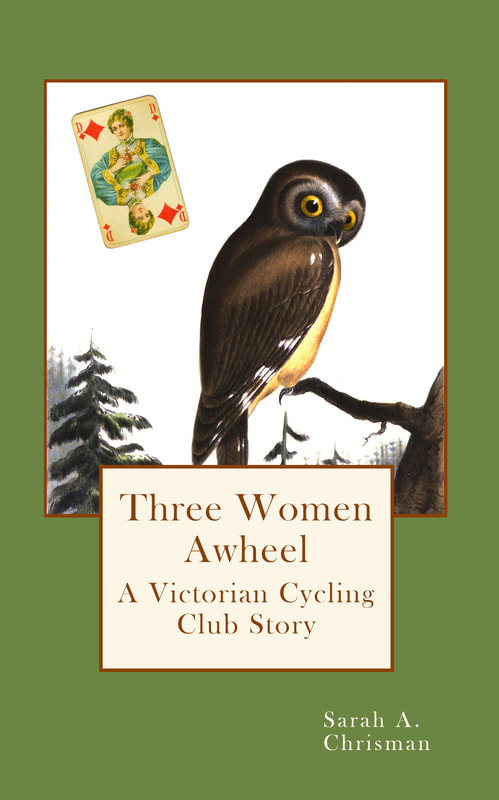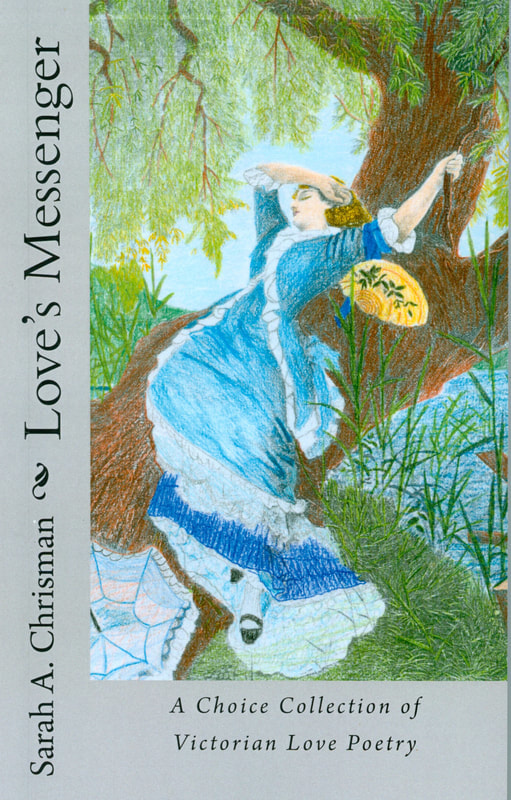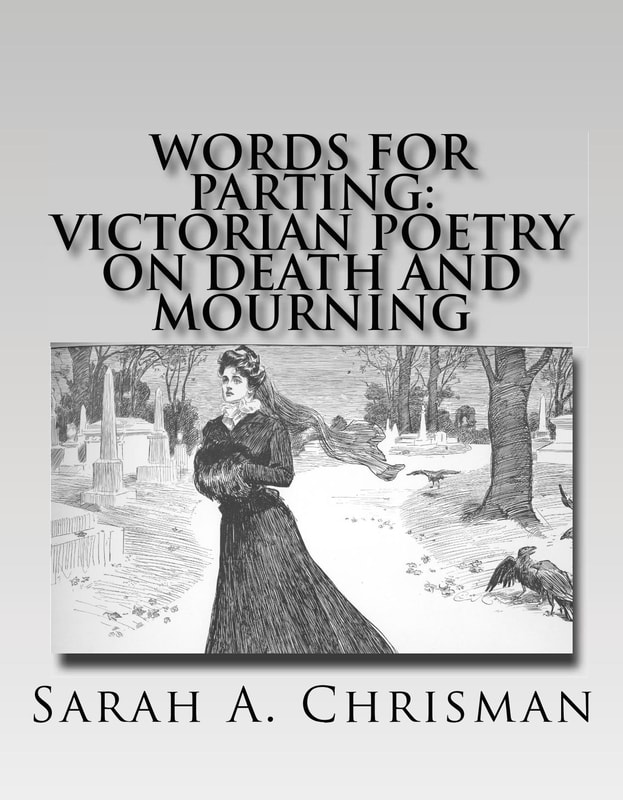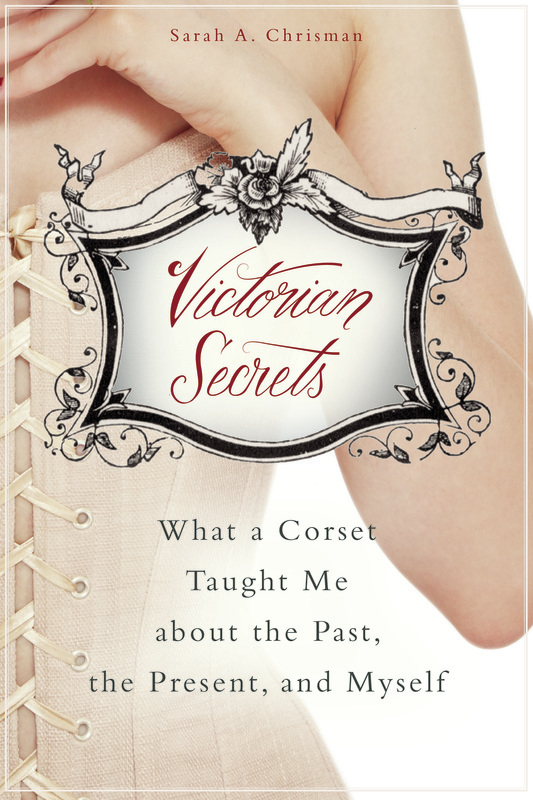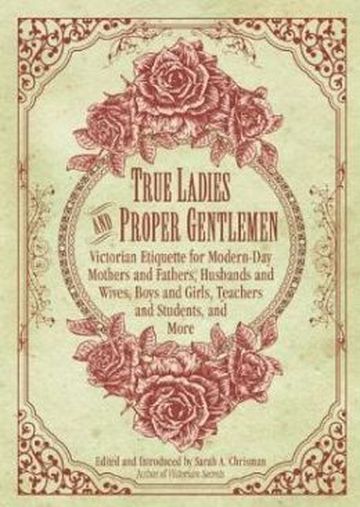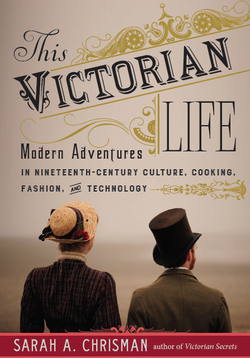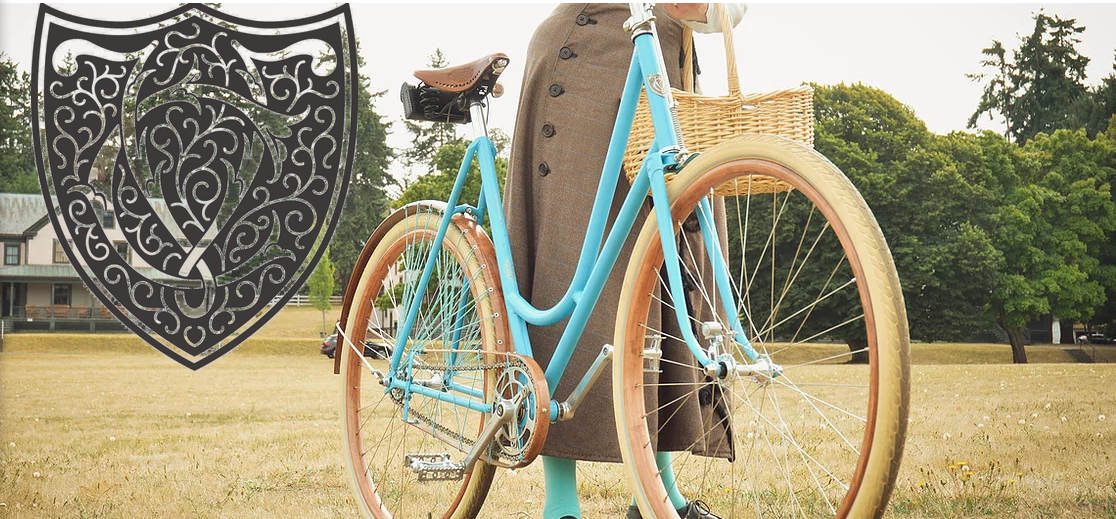Historical Article
1895
All Hallow-Eve
Excerpted from How to Amuse Yourself and Others: The American Girls' Handy Book
By Lina Beard and Adelia B. Beard.
New York: Charles Scribner's Sons. 1895. pp. 187-199.
Radiant and beautiful October, whose changing color heralds the approach of winter, gives us our first autumn holiday, if Halloween can now be called a holiday.
Before the Christian era, in the days of the ancient Celts and their priests, the Druids, the eve of the first of November was the time for one of the three principal festivals of the year. The first of May was celebrated for the sowing; the solstice on the twenty-first of June for the ripening, and the eve of the first of November for the havesting. At each of these festivals great fires were built on the hill-tops in honor of the sun, which the people worshipped. When Christianity took the place of the heathen religion, the Church, instead of forbidding the celebration of these days, gave them different meanings, and in this way the ancient harvest-festival of the Celts became All-Hallow-Eve, or the eve of All-Saints-Day, the first day of November having been dedicated to all of the saints.
For a long while most of the old customs of these holidays were retained; then, although new ceremonies were gradually introduced, Hallow-Eve remained the night of the year for wild, mysterious, and superstitious rites. Fairies and all supernatural beings were believed to be abroad at this time, and to exercise more than their usual power over earthly mortals. Because the fairy folk were believed to be so near us on Halloween, it was considered the best evening of the season for the practice of magic, and the customs observed on this night became mostly those of divination, by the aid of which it was thought the future might be read.
Before proceeding further with this subject we desire our readers to appreciate and fully understand that we are far from wishing to inculcate any superstitious belief in the power of charms to forecast future events; that we regard all fortune-telling as nonsense, pure and simple, and only insert it here, as we would any other game, for the sake of the amusement it affords. Although, to make our descriptions more intelligible, we announce the results of charms as facts, we would not have it understood that they are to be taken for such.
Nowadays, so practical has the world become, no fairy, witch, or geni could we conjure up, were we to practice all the charms and spells ever known to soothsayer or seer. Our busy, common-sense age allows no fairies to interfere with its concerns, and these creatures, who existed only in the belief of the people, must needs vanish, to return no more, when that belief is gone.
A few fortune-telling games are all that now remain of the weird ceremonies that once constituted the rites of Halloween, and the spirit of this old heathen holiday is once more changed, for it is now considered only an occasion for fun and frolic.
It was the custom for quite a number of years of some friends of the writer to give a Halloween party on each recurring Halloween; and merrier, jollier parties than those were, it would not be easy to devise. The home which opened wide its hospitable doors to the favored few on this night is a country-house, large and spacious; there is a basement under the whole lower floor, which is divided into kitchen, laundry, and various store-rooms intersected with passages, and this basement, deserted by the servants, was given up to the use of the Halloween revellers. The rooms and passage-ways were decorated with and lighted by Chinese lanterns, which produced a subdued glow in their immediate vicinity, but left mysterious shadows in nooks and corners.
Putting aside conventionality and dignity as we laid aside our wraps, ready for any fun or mischief that might be on hand, we proceeded down-stair and into the kitchen, where a large pot of candy was bubbling over the fire. this candy, poured into plates half-full of nuts, was eaten at intervals during the evening, and served to keep up the spirits of those who were inclined to be cast down by the less pleasing of Fortune's decrees. With plenty of room and no fear of breaking or destroying anything, which is apt to put a check upon frolics in the parlor, the company could give full vent to their high spirits. Now in this room, now in that, again flitting through the dim passages and around dark corners, each person seemed to be everywhere at once, and although the party was limited to about twenty-five, there appeared to be at least twice that number present. Bursts of merry laughter and little screams of pretended horror would announce, now and then, someone's fortune being told. All sorts of games were played, and the variety of our entertainment made the evening pass very quickly. All too soon the hands of the kitchen clock warned the guests that to reach home at a seasonable hour they must put an end to their Halloween festivities. A number of the following methods of telling fortunes were tried at these parties, one might say with success, for we certainly succeeded in accomplishing our main object, which was, to have a good time. By
Melted Lead
we used to ascertain what the occupation of one's future husband would be. The fortune is told this way: Each girl, in turn, holds a door-key in one hand, while with the other hand she pours the melted lead, from an iron spoon or ladle, through the handle of the key into a pan of cold water.
In the fanciful shapes the lead assumes can be traced resemblances to all sorts of things. Sometimes it is a sword or gun, which indicates that a soldier will win the fair prize; again, traces of a ship may be seen: then the favored one is to be a sailor; or a plough suggests a farmer; a book, a professor, or perhaps a minister; and when the lead forms only drops, it seems to mean that the gentle inquirer will not marry, or if she does, her husband will be of no profession.
In the fanciful shapes the lead assumes can be traced resemblances to all sorts of things. Sometimes it is a sword or gun, which indicates that a soldier will win the fair prize; again, traces of a ship may be seen: then the favored one is to be a sailor; or a plough suggests a farmer; a book, a professor, or perhaps a minister; and when the lead forms only drops, it seems to mean that the gentle inquirer will not marry, or if she does, her husband will be of no profession.
Nutshell Boats
foretell in a general way what their owner's future life will be. They should be prepared beforehand in this manner: Split an English walnut directly in half, remove the kernel, and clear away any of the partitions which may remain in the shell; then place a short piece of heavy cotton string in the shell and pour around it melted beeswax. Mould the wax into a cone shape around the string ... allowing the end to come out at the top. ...
The tapers being first lighted, several of these little craft are launched at the same time, by their respective owners, upon the sea of life, or, in other words, in a tub of water.
When a light burns steadily until the wax is all melted, and the frail bark safely rides the waves (which are occasioned by stirring the water with a stick, or shaking the tub from side to side), a happy life is predicted, and a long one.
When two boats come in contact, it means that their owners will meet and have mutual interests some time during their lives.
If one boat crosses another's path, it denotes that their owners will do the same.
If two boats come together and continue to sail about side by side, their owners will in some way pass much of their lives together.
When a boat clings closely to the sides of the tub, refusing to sail out into the centre, it shows that its owner will be a stay-at-home.
Touching often at the side of the tub is indicative of short voyages; and extended travel is predicted when a boat seldom touches the tub.
It depends a good deal upon the fancy and imagination of those testing their fate how the antics of the little fleet are interpreted, and the meanings given to the movements of the boats create no end of fun.
The tapers being first lighted, several of these little craft are launched at the same time, by their respective owners, upon the sea of life, or, in other words, in a tub of water.
When a light burns steadily until the wax is all melted, and the frail bark safely rides the waves (which are occasioned by stirring the water with a stick, or shaking the tub from side to side), a happy life is predicted, and a long one.
When two boats come in contact, it means that their owners will meet and have mutual interests some time during their lives.
If one boat crosses another's path, it denotes that their owners will do the same.
If two boats come together and continue to sail about side by side, their owners will in some way pass much of their lives together.
When a boat clings closely to the sides of the tub, refusing to sail out into the centre, it shows that its owner will be a stay-at-home.
Touching often at the side of the tub is indicative of short voyages; and extended travel is predicted when a boat seldom touches the tub.
It depends a good deal upon the fancy and imagination of those testing their fate how the antics of the little fleet are interpreted, and the meanings given to the movements of the boats create no end of fun.
"Three Luggies." [Dishes]
The three bowls, or dishes, one containing clear water, one milky, and the other nothing at all, are placed in a row on the hearth-stone or table, and the girl wishing to try her fortune is blindfolded and led up to where the dishes stand. She is then told to put her left hand into one of the bowls. If she dips her fingers in the clear water, she will marry a bachelor; if in the milky water, a widower; and if into the empty bowl, it is a sure sign that she will live in single blessedness all her days.
This ceremony must be gone through with three times, and the hand be dipped twice in the same bowl, in order to make the prediction of any value.
This ceremony must be gone through with three times, and the hand be dipped twice in the same bowl, in order to make the prediction of any value.
Roasting Nuts
is the charm by which the friendship of anyone may be tested. The applicant for knowledge on this point names two nuts, one for her friend and the other for herself, and then places them side by side upon the grate, or a shovel held over the fire. If they burn quietly, it is prophetic of a long and happy friendship kept up by both parties; but if in roasting they burst with a loud report and fly apart, they are decidedly uncongenial, and should not seek much intercourse. The movements of the nuts while heating are closely watched, for the tempers of the persons for whom they are named is said to be thus revealed.
Kaling
is a mode of telling one's fortune not as well known, perhaps, as the foregoing methods. The ceremony is carried out in the following manner: Two girls are blindfolded and started off on the path to the kitchen-garden and cabbage-patch, where each pulls up the first stalk she finds. They then return at once to the house, where the bandages are removed and the mysterious stalks examined.
According to the state of the stalk, so will be the gatherer's fate. If it is straight or crooked, large or small, so will the future husband be; if it has a pleasant taste, or the reverse, the character of the person will correspond, and the quantity of earth clinging to the roots denotes whether their riches will be little or great.
When there are no cabbages at hand, almost any other garden vegetable will answer; and if there be objections to going out-of-doors, vegetables of various kinds, such as turnips, beets, and parsnips, may be placed on a table, and the persons blindfolded can choose from them. No doubt the charm will work as well with the plants upon a table as when they are pulled from a kitchen garden.
According to the state of the stalk, so will be the gatherer's fate. If it is straight or crooked, large or small, so will the future husband be; if it has a pleasant taste, or the reverse, the character of the person will correspond, and the quantity of earth clinging to the roots denotes whether their riches will be little or great.
When there are no cabbages at hand, almost any other garden vegetable will answer; and if there be objections to going out-of-doors, vegetables of various kinds, such as turnips, beets, and parsnips, may be placed on a table, and the persons blindfolded can choose from them. No doubt the charm will work as well with the plants upon a table as when they are pulled from a kitchen garden.
The Magic Mirror
which is simply a hand-glass on ordinary occasions, and gains its mysterious power only on Halloween, divulges, under certain conditions, the delightful secret of how many bits of good fortune will fall to one's share during the ensuing year. The conditions are that the person wishing to know how bright her prospects are shall go to an open window or door from which the moon is visible, and, standing with her face in-doors, hold her mirror so that the moon will be reflected in it. The number of moons she sees there betokens the number of times something pleasant will happen to her before the advent of another Halloween.
Three Tin Cups
partially filled with water are placed on the small ends of three funnels, which are placed in a row on the floor, about two feet apart. Over these cups, one after another, each member of the party must leap in turn. Whoever succeeds in leaping over all three cups without knocking any of them off will make an early marriage. The person who knocks over one will mary when not so young. The marriage of the one who tips over two cups will be deferred until late in life, and she who leaps none of them safely will not be married at all.
To guard against wet feet very little water should be put in the cups—only enough to make the players careful about tipping them over.
To guard against wet feet very little water should be put in the cups—only enough to make the players careful about tipping them over.
The Ring Cake
is always an object of interest at Halloween parties. The cake itself is made like the ordinary kind, but before it is baked a plain gold ring is hidden in the dough, not to be taken out until the cake is cut and it falls to the share of the fortunate person in whose slice it happens to be found. The ring is sometimes put in a flour-cake, which is simply flour packed into a cake-mould so firmly that when it is turned out it retains the shape of the mould and can be sliced off with a knife. Each member of the party cuts her or his own section of flour, and whoever secures the ring, it is confidently stated, will be the first of the group to marry.
Some Halloween games apparently have no particular meaning attached to them, but seem to be devised for the purpose of creating as much fun as possible.
Some Halloween games apparently have no particular meaning attached to them, but seem to be devised for the purpose of creating as much fun as possible.
Bobbing for Apples
is, perhaps, familiar to most of our readers, but we give a description of it here for the benefit of the few who may not know the game so well.
In a large tub full of fresh, cold water several apples are placed, and it is the object of the participators to take them out of the water with their teeth.
As the rosy-cheeked, tempting fruit bobs within easy reach, it looks simple enough to secure a prize; but the apples are so round and slippery, so aggravatingly illusive, that, unless you thrust your head and neck beneath the cold water, regardless of consequences, and drive an apple to the bottom, the feat cannot be accomplished. The girls can seldom be induced to try their luck in this game, but usually content themselves with looking on, immensely enjoying the frantic endeavors of the boys to succeed at any cost.
In a large tub full of fresh, cold water several apples are placed, and it is the object of the participators to take them out of the water with their teeth.
As the rosy-cheeked, tempting fruit bobs within easy reach, it looks simple enough to secure a prize; but the apples are so round and slippery, so aggravatingly illusive, that, unless you thrust your head and neck beneath the cold water, regardless of consequences, and drive an apple to the bottom, the feat cannot be accomplished. The girls can seldom be induced to try their luck in this game, but usually content themselves with looking on, immensely enjoying the frantic endeavors of the boys to succeed at any cost.
The Apple and Candle Game
is another favorite sport for Halloween, and is played as follows: From the ceiling is suspended a stout cord, the lower end of which is securely tied to the center of a stick about a foot and a half long. On one end of the stick is fastened an apple, on the other end a lighted candle. The string is set in motion, swinging back and forth like a pendulum, and the contestants for the prize stand ready, each in turn, to make a grab for the apple, which must be caught in the teeth before it can be won. Frequently the candle is caught instead of the apple, which mishap sends the spectators off into shouts of merriment; but although funny, it is at the same time a little dangerous to catch a lighted candle in one's teeth, and we would suggest that a bag made of cheese-cloth, or like thin material, be filled with flour and tied to the stick in place of the candle. When the person essaying to snatch the fruit is struck in the face with the bag, and is covered with flour instead of the glory anticipated, as much mirth will result as can possibly arise when the old and dangerous practice of using a candle is clung to.
The Ghostly Fire
should not be lit unless all of the party have strong nerves, for the light it produces is rather unearthly, and may affect some members unpleasantly. We, at our Halloween parties, never omitted this rite, however, its very wierdness proving its strongest attraction. Salt and alcohol were put in a dish, with a few raisins, and set on fire. As soon as the flame leaped up we clasped our hands and gayly danced around the table, upon which burned our mystic fire. The laughing eyes and lips looked in strange contrast to the pale faces of their owners, from which the greenish purple light had taken every vestige of color. The dance was not prolonged, for it was our duty, before the fire was spent, to snatch from the flames the raisins we had put in the dish. This can be done, if one is careful, without as much as scorching the fingers, and I never knew of anyone burning themselves while making the attempt.
Trying for a Raisin
is a very laughable performance. The raisin, which must be a good-sized one, is strung on and pushed exactly to the middle of a soft cotton string about one yard long. Two aspirants for the prize then take each an end of the string, which they put in their mouths, and commence to chew, taking it up as fast as they can —the raisin falling to the share of the person who succeeds in reaching it first.
A Lighted Candle
is again used in a game which is exceedingly amusing. The candle is placed upon a table in full view of everyone; then one of the players is blindfolded, turned around several times, and set free to seek for the candle and blow out the light, if possible.
To see girls, with their hands clasped behind them, going crazily about the room, blowing at anything and everything, is very ludicrous. They seldom find the candle, and even when the table is reached it is difficult to blow in such a direction as to extinguish the flame.
To see girls, with their hands clasped behind them, going crazily about the room, blowing at anything and everything, is very ludicrous. They seldom find the candle, and even when the table is reached it is difficult to blow in such a direction as to extinguish the flame.
The Fairy's Gifts
are suggested as a new and original ending of a Halloween frolic.
The Fairy Godmother, in Mother Hubbard costume, carries a large basket under her cloak or shawl. She enters the room and announces that she has a certain number of gifts which she proposes to distribute among the company. After cautioning all that the contents must be kept secret, she passes to each person a folded paper. On one is written, "Wealth," on another "Honor," on the third "Fame," etc., and some of the papers are left blank.
Those whose papers contain the names of gifts are then blindfolded, preparatory to receiving their behests.
The first is led up and made to kneel before the Fairy Godmother, to whom she repeats these words:
The Fairy Godmother, in Mother Hubbard costume, carries a large basket under her cloak or shawl. She enters the room and announces that she has a certain number of gifts which she proposes to distribute among the company. After cautioning all that the contents must be kept secret, she passes to each person a folded paper. On one is written, "Wealth," on another "Honor," on the third "Fame," etc., and some of the papers are left blank.
Those whose papers contain the names of gifts are then blindfolded, preparatory to receiving their behests.
The first is led up and made to kneel before the Fairy Godmother, to whom she repeats these words:
Most gracious Fairy, the gift you give
I shall treasure and keep as long as I live.
I shall treasure and keep as long as I live.
Then the paper containing the name of the gift is handed the Fairy, who reads it aloud very solemnly: "Wealth" —and, turning to her basket, she takes from it a new dust-pan, to which is attached a ribbon-loop, at the same time reciting these lines:
Your choice is bad when you intrust
Your happiness where moth and rust,
In time, turn all your wealth to dust.
Your happiness where moth and rust,
In time, turn all your wealth to dust.
From a paper-bag the Fairy pours a small amount of dust over the kneeling girl, and hangs a dust-pan around her neck.
The next person who has drawn a prize is then brought forward and the performance is repeated, only altering the Fairy's speech. For "Honor," she will say:
The next person who has drawn a prize is then brought forward and the performance is repeated, only altering the Fairy's speech. For "Honor," she will say:
Your honor crowds shall loud declare,
But in your heart, no crowd is there,
You'll find, like Falstaff, "honor's air."
But in your heart, no crowd is there,
You'll find, like Falstaff, "honor's air."
The present here is a pair of bellows, from which the Fairy blows a blast on the bowed head before she utters the word air. The bellows, like the dust pan, are hung by a ribbon around the recipient's neck.
For "Fame," the fairy gives a wreath of roses, and says, as she adjusts the crown:
For "Fame," the fairy gives a wreath of roses, and says, as she adjusts the crown:
When Fame doth weave a laurel-wreath,
He weaves this subtle charm beneath;
"For every evil thought that's born
The laurel grows a prickly thorn;
But where pure thought and love reposes,
The laurel-wreath's a wreath of roses."
He weaves this subtle charm beneath;
"For every evil thought that's born
The laurel grows a prickly thorn;
But where pure thought and love reposes,
The laurel-wreath's a wreath of roses."
***
Get this wonderful Victorian image from our archive, of a sweet girl witch and her black cat, printed on a bag, mug, and more!
Coloring pages for trick-or-treaters:
Other pieces of interest for Halloween:
The Autumn Woods (Poem—1888)
Great Grandma's Hallowe'en (Poem —1887)
In Nutting Time (Poem—1890)
Mourning and Mourners (1888)
October (Poem—1888)
Song for October (Poem—1888)
The Children of Arachne: European Spiders (1889)
***
Maintaining this website (which you are enjoying for free!) takes a lot of time and resources.
Please show your support for all our hard work by telling your friends about Sarah's books —and by buying them yourself, too, of course!
***
Victorian
|
True Ladies
|
This
|
Victorian Cycles
Hand-built 1890's-style bicycles
Interested in a real time machine? Commission one of our 1890s-style custom bicycles! Custom, hand-made steel frames with wooden fenders and chainguards, leather saddles and cork grips. Whether you are interested in a roadster or a racer, we can build you the period bicycle of your dreams.
***
For words of wit and advice sage,
I hope you'll like my author page!
History lessons, folks who dare,
Please do share it while you're there!
https://www.facebook.com/ThisVictorianLife
Search this website:
***
